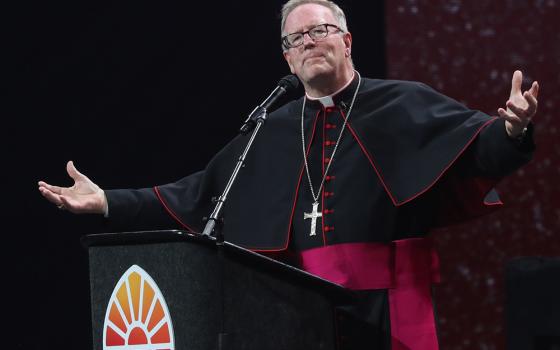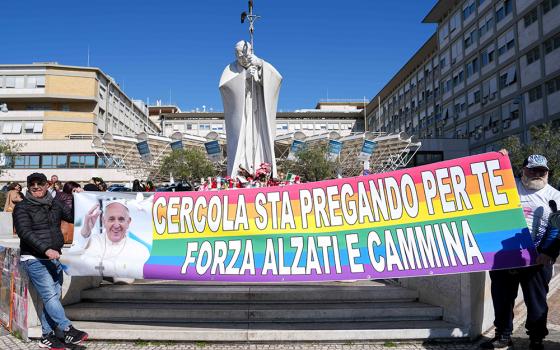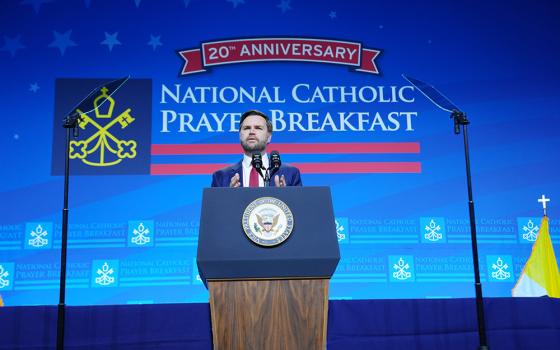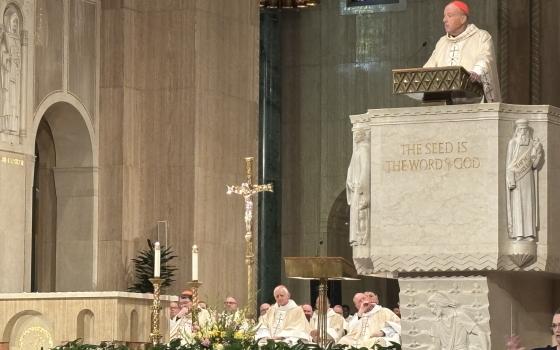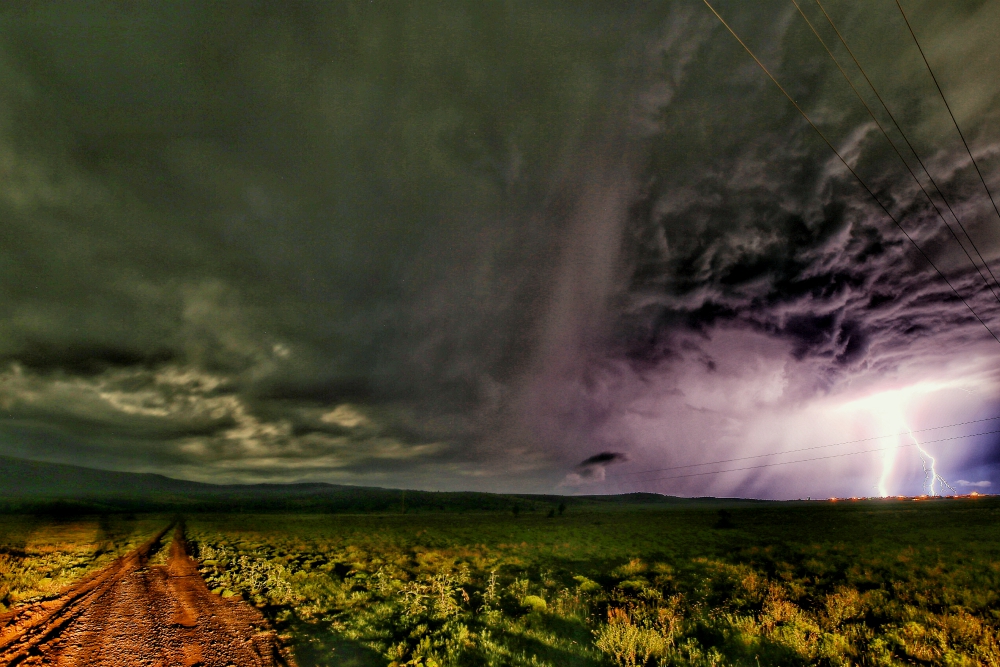
(Unsplash/Justin Novello)
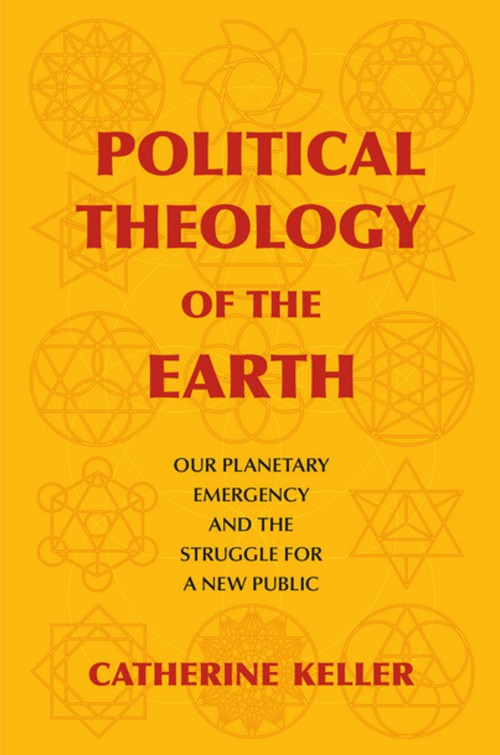
You don't need me to tell you that we are currently facing an overwhelming array of crises around the world. Political strongmen — dictators — coming to power. Millions of refugees fleeing war and climate catastrophe. A vast array of species facing extinction. And seemingly endless religious conflicts — not to mention the plummeting of membership in institutional religion, at least in the West.
These crises seem so dire that many use the word "apocalypse" to characterize them.
Yet as constructive theologian Catherine Keller explains in her galvanizing new book, Political Theology of the Earth, apocalypse doesn't mean what many think it means: the coming of the end times. This is not to say that Keller dismisses the crises that face us. She agrees that we are right to be apprehensive.
But drawing on studies of the Pauline epistles, Keller shows that the passage in 1 Corinthians (7:29) believed to mean "the end times" is more accurately translated "the time that remains," or "the time is contracted." This, then, is not chronos, regimented linear time, but kairos, "the time in which something can be done." And for Keller, this something is "messianic contraction."
Drawing on this understanding of the time that remains as a kairotic unfolding, Keller weaves together the three arenas of seeming apocalypse — the political, the Earth and religion — into a new schema of possible transformation.
She begins by linking the current political crisis to the modern theory of the state, rooted in the notion of the sovereign leader, whose power is justified by the state of emergency or exception. Except that the state of exception is becoming increasingly permanent. And as Nazi Catholic political scientist Carl Schmitt explained decades ago, this modern concept of the sovereign state is, at bottom, secularized theology. The omnipotent God becomes the omnipotent lawgiver. And this exceptional leader unites us against the exceptional enemy — Jews, blacks, Muslims, immigrants, gays, etc.
In place of the antagonism of enmity embedded in the sovereign political framework, Keller discerns a loving agonism, or struggle, at the heart of the messianic contraction that is our cosmic political reality. This means not war but painful, loving struggle across differences to bring forth a more common, democratic good.
Advertisement
Regarding the crises of the Earth, Keller traces links between the secular theological notion of the omnipotent sovereign and the dominion theology of creation used to justify the exploitation of the planet.
Keller's political theology moves instead toward a recognition of the deep intersectionalism between all the human and nonhuman elements of creation. Failure to acknowledge and enact this deep interdependence places Earth and all its species on a planetary suicide trajectory. The incorporation of the science of matter itself renders Keller's political reconfiguration of the Earth all the more compelling.
Keller replaces the disaster of divine sovereign omnipotence with a theology that acknowledges the divine unknowing at the heart of the cosmos. Such a theology is forced to acknowledge its own failures, its propagation of a hierarchical cosmos, even as it embraces the messianic emergence of possibility from the heart of struggle and despair.
Drawing on Pauline descriptions of God as the "all in all," Keller portrays a God who is persuasive, not domineering, immanent in the world even as the world is immanent in her/him/it. Sin, then, is our failure to embrace this enfoldment of all in all, to love our neighbor as ourselves.
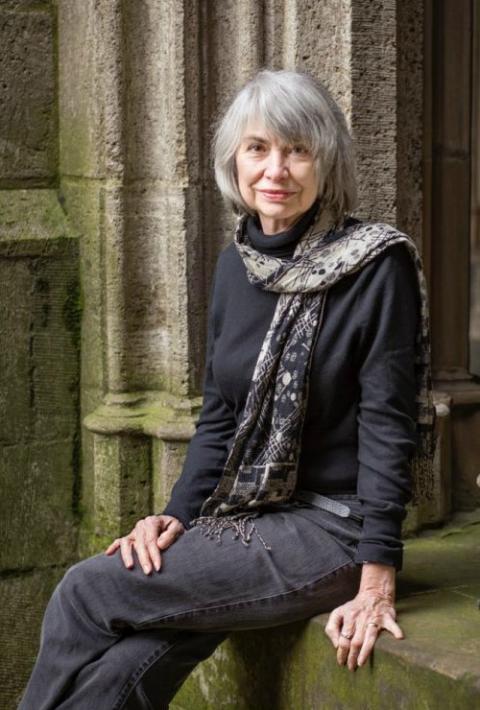
Catherine Keller, author of "Political Theology of the Earth" (catherineekeller.com)
Yet even as we fail in this enfoldment, the messianic contraction, the Christ who died for us, offers new possibilities for hope. Central to this theological vision is not only contemplative encounter with the silence of God at the heart of this cosmos, but our joining together in art and political action to transform it.
Keller's political theology of the Earth is a development — an unfolding, we might say — of process theology. Traditional theologians tend to declare such theology heretical; I believe the doctrinal committee of the U.S. bishops' conference condemned St. Joseph Sr. Elizabeth Johnson's theology in 2011 because her argument that God suffered sounded to them like process theology — never mind the Christian teaching that the human being who suffered on the cross is, in fact, God.
Yet before such theologians are too quick to declare heresy, it is important to remember that Keller enfolds the Christian mystical tradition into her version of process theology. Such an inclusion of apophatic, or negative, theology into Keller's contemporary political theology may well be more an instance of the development of doctrine than a heresy. And given the dire effects of the Christian teaching of an omnipotent, transcendent God who accords dominion to some of his creatures over all the rest, isn't it past time to enfold the presence of a persuasive, compassionate God into the time we have remaining?
Keller's political theology of the Earth is breathtaking in the scope of the resources it draws upon and the depths of its analysis. Some may find this a disadvantage. I myself read the book slowly, several times, so as to absorb all its originality and nuance.
Another approach is to consider Political Theology of the Earth a work of what Keller herself calls "theopoetics," a becoming of something new — a dive into the profound linguistic-material entanglements that are our apocalyptic reality. A bit like the first time you read the poetry of Gerard Manley Hopkins, or James Joyce's Ulysses. Just read it, and when you fail, enfold yourself into the cosmic process and read it again. That's certainly what I'm going to do.
[Marian Ronan is research professor of Catholic studies at New York Theological Seminary in Manhattan.]

